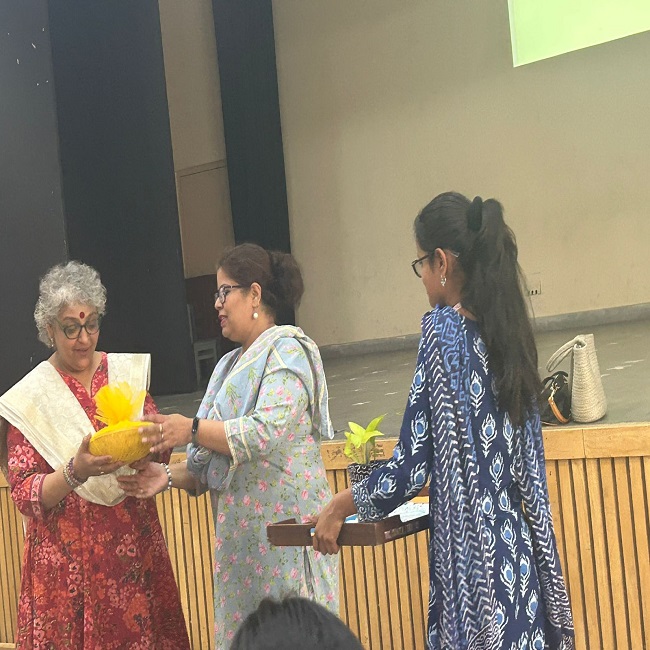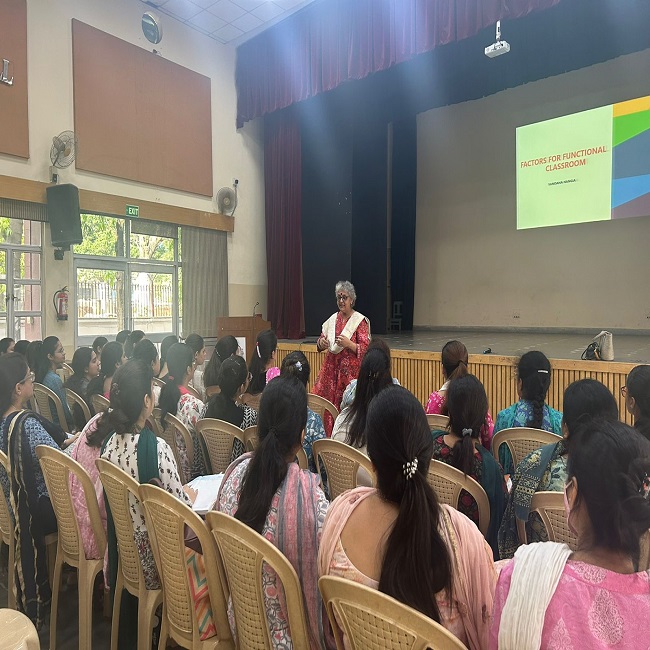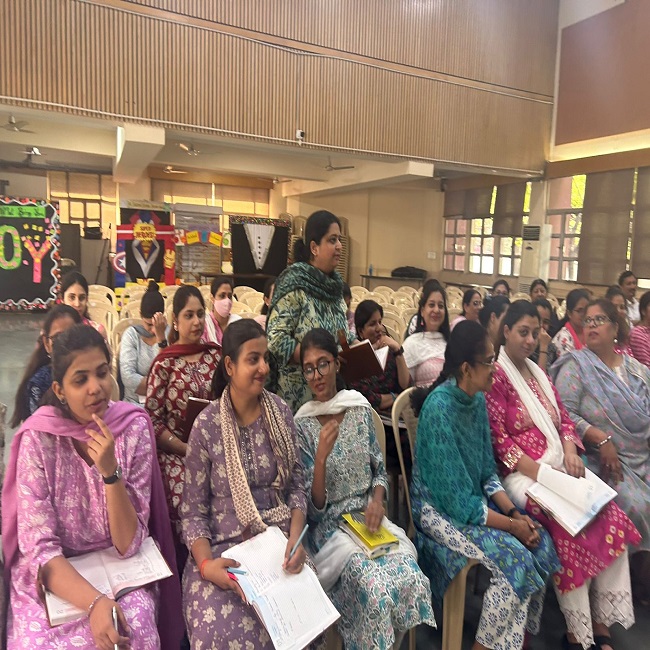Teacher workshop- 'Enhancing Functional Classrooms'
An interesting session was conducted by educator, Ms Vandana Nangia on 27 May 2024 in the School auditorium. 35 teachers of classes 3 to 5 attended this interactive workshop. The topic of the workshop was "Factors for a Functional Classroom”.
Ms Nangia is a respected educator who is known for her expertise in special education, advocating an inclusive learning environment and personalised instruction. Through workshops and publications, she inspires educators to create supportive classrooms that nurture the academic and emotional development of all students.
The session delved into various factors crucial for accommodating diverse student needs and fostering an inclusive learning environment. The workshop highlighted some important pointers like Assumptions vs. Teaching. Ms Nangia highlighted how teacher's assumptions about students can impede effective teaching. Preconceived notions may hinder educators from adapting their methods to suit individual learning styles that in turn can effect student academic progress. She also alluded to the fact of “Role of Senses”.
She emphasised leveraging different sensory modalities to enhance learning experiences. From visual aids to auditory instructions, olfactory cues, gustatory experiences, tactile engagement (including emotional responses), proprioception, vestibular activities, kinaesthetic learning, and integrating sensory experiences enriches comprehension and retention among students.
The speaker indicated the Importance of Different Learning Styles. She clarified the importance of recognising and accommodating various learning styles. The strapline for the workshop was "If I can't learn the way you teach, teach me the way I learn," advocating personalised instruction tailored to individual student needs.
Another facet is Effective Communication. Clear and concise communication strategies were emphasised to bridge gaps of understanding. Acknowledging that students interpret information differently, the workshop stressed the importance of fostering open dialogue and active listening
Last but not the least as 21st century mentors we need to prioritise physical well being. Integrating physical well being into the learning environmen involves integrating brief physical breaks with academic tasks, proving more effective rather than rigid time constraints. Recognising the importance of such breaks enhances student academic performance and overall well being.
To conclude, the workshop was an eye opener. It discerned educators with valuable insights and practical strategies to create functional classrooms conducive to students' academic and emotional development.















